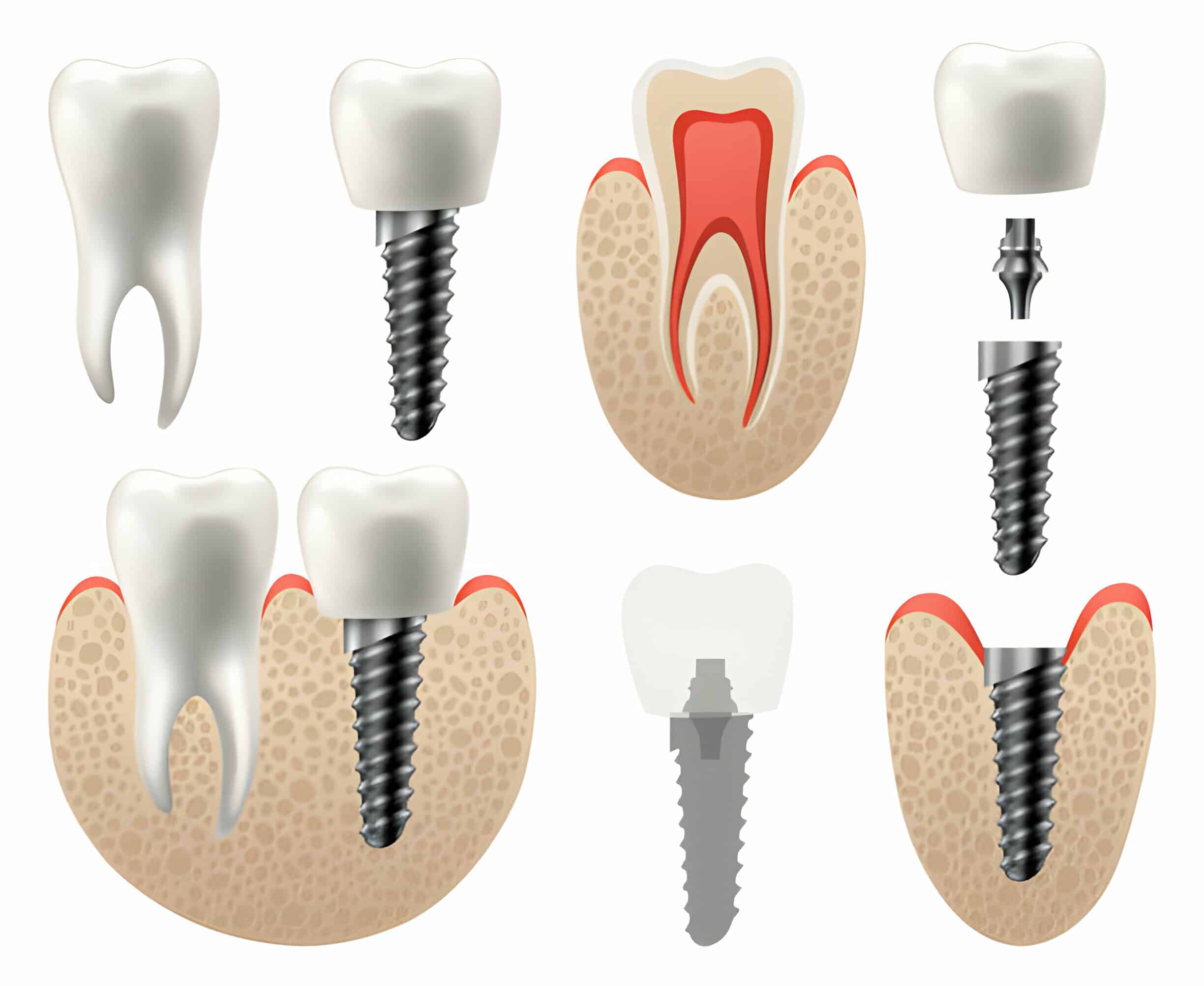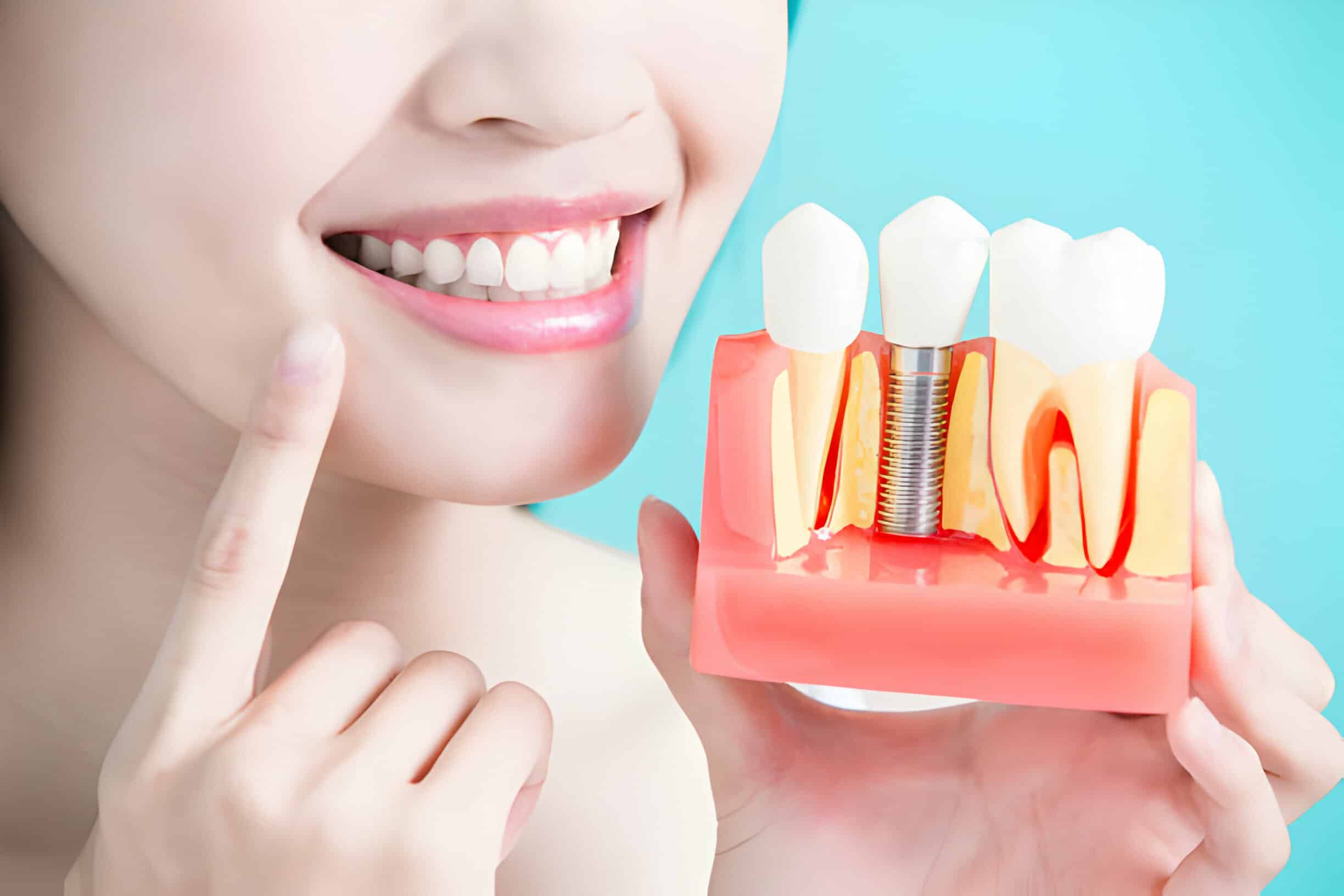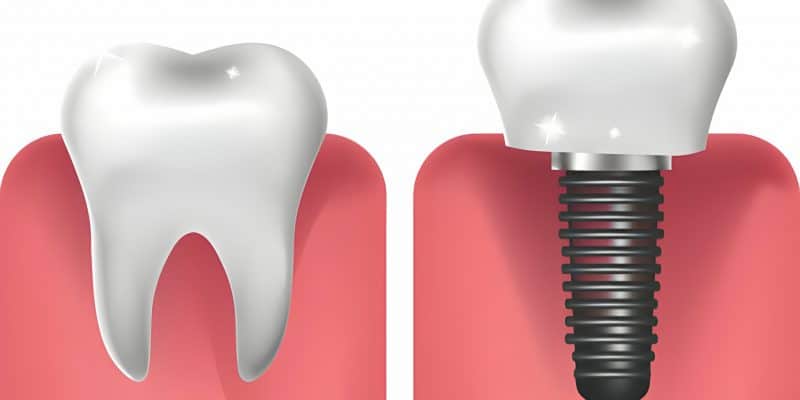Summary:
Dental implants are a revolutionary solution in modern dentistry. They are a natural, seamless option for replacing missing teeth. In fact, it’s the go-to option for over 156+ million Americans.
Wonder why?
The secret lies behind their longevity! When properly cared for, these appliances last for over 15 years.

The long-lasting nature of dental implants makes them the go-to option for most individuals. Interestingly, however, their longevity isn’t the only factor that makes this appliance the perfect replacement for missing teeth.
This blog takes a closer look at the several advantages of oral implants in the long term with topics like:
- Understanding Dental Implants
- When Do You Need Implants?
- Types of Implants
- What Makes Dental Implant A Long-term Investment?
- Are Implants a Good Long-Term Investment for You?
- Know the Risks Associated with Dental Implants
Continue reading as we learn more about the long-term benefits of oral implants in the following sections.
Understanding Dental Implants
Dental implants are titanium posts designed to mimic the look of your natural tooth. They are surgically inserted in the jawbone to replace tooth roots. These posts act as strong anchors for prosthetic teeth, including crowns, bridges, and dentures. They are a great option to restore the appearance and functioning of real teeth.
Before we discuss the benefits and significance of dental implants, it’s crucial to understand their composition and how they function. Let’s have an overview of the process:
- Dental implants consist of three primary components: the implant fixture, abutment, and a prosthetic tooth.
- The implant is made of biocompatible titanium material, which fits into your jawbone through osseointegration.
- Next, the abutment sits on the implant and connects the prosthetic tooth and the implant.
- Lastly, although made artificially, the prosthetic tooth is custom-made to match your natural teeth. It is attached to the abutment securely.
Implants are a special treatment option because of their unique ability to merge with the jaw. Since these appliances are fused with the jawbone, they bond with your cavity via osseointegration.
When Do You Need Implants?
Dental implants are the go-to option if you’ve lost one or more teeth. You can also choose this treatment if you need a bridge replaced. However, we recommend waiting at least one or two months before the procedure. It allows your gums to heal.
Meanwhile, you might get a bone graft to keep the spacing intact and ensure your gums don’t shrink. You must also consult your dentist in Love Park, IL, and get their opinion on your qualifications for the treatment. They can give you the best suggestions.
Types of Implants
Based on how they are attached to your jaw, oral implants can be broadly categorized into two types, namely:
Endosteal Implants
It’s the most common appliance implanted into your jawbone during surgery. One or more prosthetic teeth can be attached to these implants. These are the best options if you already have bridges or removable dentures.
Subperiosteal Implants
This implant is placed on the top of the jaw. It has a metal framework attached to the gum, which holds onto your prosthetic teeth. If you cannot wear removable dentures or don’t have enough bone structure to hold an endosteal implant, this is the right choice.

Are You An Ideal Candidate for Implants?
You’re an ideal candidate for implants if:
- You have a fully grown jawbone
- You have enough bone structure to hold the implant
- You can have a bone graft procedure if you lack the required bone structure.
- You have good oral health and healthy gum tissue without any periodontal disease
- You don’t smoke or have health conditions that might affect the healing procedure.
- You are over 18 and mature enough to commit for several months.
What Makes Implant A Long-term Investment?
Natural Appearance
Dental Implants look and feel like natural teeth. They are custom-made to match your other natural teeth’s shade, shape, and size. It allows the implant to blend in seamlessly. This integration creates a natural appearance and enhances your smile and facial aesthetics.
Enhanced Speech
Missing teeth, especially in the front, will most likely affect your speech and clarity. Dental implants help restore your ability to speak clearly and confidently. They replace the missing teeth with a prosthetic tooth that resembles and acts like a natural tooth and helps eliminate further speech problems.
Comfortable and Functional
As mentioned earlier, implants resemble natural teeth. They become a part of your mouth and function just like natural teeth. It reduces discomfort and inconvenience caused by other restoration methods, like removable dentures. Dental implants allow you to eat your favorite food without worrying about denture slippage.
Improved Oral Health
Dentures can slip and slide in your mouth, resulting in sore or infected gums. Bacteria can also live in the cracks and crevices of your dentures, increasing the risks of infection. Implants provide proper access between your teeth so you can continue to floss your teeth for better gum health.
Are Dental Implants a Good Long-Term Investment for You?
Yes!. Dental Implants are worth every penny as they restore oral health and smile. No other tooth replacement procedure has the power to do this. Tooth loss can lead to facial collapse, where your facial profile becomes sunken.

It is because your body starts absorbing minerals from your jaw, leading to bone loss, and implants can keep your appearance intact. Besides, other factors make it a good investment, namely;
-
Durability
Dental implants are designed as a permanent solution for tooth replacement. They are made of biocompatible and sturdy metals like titanium or zirconium.
Once integrated into your mouth, it becomes a sturdy foundation for the prosthetic crown. If you take care of it, your tooth replacement will last decades.
-
Longevity
Other dental restorations, such as bridges or dentures, require replacement or adjustments over time. Conversely, implants have a high success rate of 98% and last a lifetime.
The durable metal structures remain unaffected, thereby reducing frequent replacements and ultimately saving you on long-term costs.
-
Preservation of Jawbone
As mentioned earlier, the jaw loses its structure and deteriorates when a tooth is lost. This is also due to the lack of stimulation from the tooth roots.
Dental implants mimic your natural teeth by fusing with the jawbone, thereby preserving the bone structure and preventing bone loss. Avoiding bone loss is also crucial for maintaining facial aesthetics.
-
No Alterations for Surrounding Teeth
Other dental restoration procedures require adjustments to the adjacent teeth. In the case of dentures, alterations are often made to allow proper placement of the fixed partial denture. For dental bridges, the crowns of the neighboring teeth are prepared.
Conversely, implants require no alterations, so natural teeth are preserved. Preserving natural teeth also improves overall oral health and reduces the risks of future dental problems.
-
Cost-Effective
Dental implants’ longevity and durability reduce the need for replacement or repairs, making them a more cost-effective option in the long run. Besides, most medical insurance plans cover implants.
Know the Risks Associated with Dental Implants
Dental implants in Loves Park, IL, usually have a high success rate, but since they are a surgical procedure, you should expect some pain. The pain can usually be treated using over-the-counter pain medications.
Other risks or complications of implants include infection, nerve damage, sinus damage, or an allergic reaction to the implant material. To avoid these risks, you must take your time and choose an experienced dentist.
Takeaway
- Dental implants are titanium posts designed to mimic the look of your natural tooth.
- When cared for, they can last for up to 15 years.
- Other restorations, such as bridges or dentures, require replacement or adjustments over time.
- Explore the magic of a renewed smile with our Loves Park Family Dental experts today!

